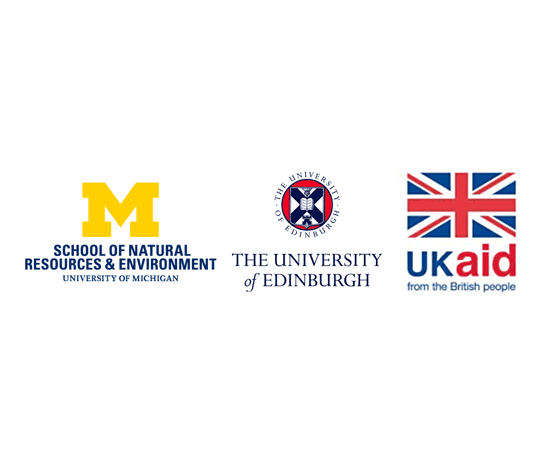The FLARE (Forests and Livelihoods: Assessment, Research, and Engagement) network’s 2nd annual meeting aims (1) to advance cutting-edge knowledge and practices regarding forest-based livelihoods, governance, biodiversity, and climate change; (2) increase dialogue and interactions between practitioners and researchers/scholars; and (3) create a global community of practice on forest-livelihood interactions. The meeting will focus on the approaches, methods, tools, and indicators to assess how, where, and why governing forest and forest mosaics for improving livelihoods works, and how it can be strengthened.
University of Edinburgh, U.K. December 2 – 5, 2016
Conference Themes:
The future of forest work and communities
This theme examines the future of work in relation to forests, forest-based livelihoods, and local communities in a rapidly urbanizing world. To this end, we seek submissions that examine 1) the drivers and patterns of both rural- to- urban and urban-to-rural migration and the impacts of these trends on forest communities and conservation; 2) case studies/examples of thriving forest communities that successfully engage members of all ages in forest-related work; 3) the role of land rights and resource control in sustaining forest communities economically, culturally, and ecologically; and 4) what makes for ‘meaningful work’ in forest communities in the context of rapid globalization, especially for youth. What role, if any, can government, private sector, and civil society play in promoting such outcomes?
Forests in flux
Forests are undergoing change around the world, with the majority being secondary in their successional stages. How are these forests changing, and how does this affect people who live in/near them? We invite submissions that relate, but are not limited to the following sub-themes: 1) The ecological properties of different types of forests (plantations, agroforestry systems, primary, managed, naturally regenerating) and the ecosystem services and livelihood benefits that they provide. 2) Patterns in forest cover change (and other properties of forests) at multiple temporal and spatial scales, and the implications of these changes for people.3) How policy and market-based initiatives drive changes in forest cover (or other forest properties) and use (e.g. climate change policies including REDD+, FLEGT, the Bonn Challenge on forest landscape restoration, large-scale corporate interests, zero net deforestation commitments). 4) Climate and climate policies as drivers of forest and forest-based livelihood change. 5) Studies that generally integrate research on changing forest ecology or forest properties with people’s lives and livelihoods.
Developing approaches and indicators to assess social and ecological outcomes
This theme has a methodological focus. Contributions addressing the challenges related to 1) establishing causal relationships between various types of forest interventions and ecological/livelihood/governance outcomes 2) using experimental approaches and counterfactual analyses; 3) merging datasets with different resolutions; 4) selecting indicators (including proxy and predictive indicators) to assess impacts; 5) balancing context-specific design parameters with generalizable results; and 6) combining qualitative and quantitative methods. Other relevant methodological tools are also welcome.
Linking practice and research
Efforts to better connect research with people and organizations involved in forest management and livelihood development decision making are receiving increased interest and attention. This theme seeks contributions that highlight research needs from the view of practitioners. Abstracts may describe or identify on-the-ground challenges (for example, of implementing and/or measuring progress of climate mitigation and adaptation interventions, or legality verification mechanisms), knowledge and data gaps, and useable, robust monitoring and evaluation strategies. Contributions that propose research-practitioner collaborations are also welcome.
Pathways to prosperity
We invite conceptual, framing, modeling, and empirical work (including case studies and cross-case comparative studies) that highlight the role of forests in lifting people out of poverty and spurring broader economic growth (e.g. scaling up of small and medium forest enterprises, community-private sector partnerships, large-scale industrial development of based on forest products, new markets (e.g. for carbon credits) and earnings based on non-wood forest products and the like). Studies at local or regional levels where forest reliance has improved people’s lives and livelihoods while conserving the natural resource base, as well as theoretical contributions, are especially valuable. Studies that analyze the historic and/or contemporary contribution of forests to national economies are also of interest. Abstracts that focus on solutions, successes, and lessons learned, are welcome.
Implementing forest & livelihood policies
This theme examines the role of governments in implementing forest, agriculture, and livelihood policies. Contributions will highlight the ways in which forest governance structures, systems, and players exacerbate policy failure, in some cases, and assist in developing innovative solutions to forest and livelihood challenges, in others. We are thus seeking papers that 1) apply theories of policy implementation or public management to understanding forest policy implementation; 2) develop new approaches or theories to understanding the role of government officials in forest policy implementation (or agriculture policy implementation in or near forests); and 3) report on successful strategies used by practitioners to effect positive change in the management of forests. We welcome papers that focus on the implementation of important recent policy initiatives, such as REDD+, FLEG(T/VPA), zero net deforestation, and the Bonn challenge, as well as examining older and broader policy initiatives. We especially encourage submissions by people with practical experience in the field – such as government officials, activists, and NGO leaders.
Keynote Speakers:
Marina Silva
Former Minister of Environment of Brazil
Joji Carino
Senior Policy Advisor for Forest Peoples Programme
Watch Marina Silva’s statement to the FLARE community on the importance of the recognition of indigenous people’s rights and knowledge, recorded for the annual FLARE conference in 2016.
Meeting Documents:
Scientific Committee (Annual Meeting 2016)
Arild Angelsen (Norwegian University of Life Sciences)
Christopher Barrett (Cornell University)
Tony Bebbington (Clark University)
Rosina Bierbaum (University of Michigan)
Guillermo Castilleja (Moore Foundation)
Robin Chazdon (University of Connecticut)
Stanley Dinsi (Network For Environment and Sustainable Development-Cameroon)
Michael Dove (Yale University)
Paul Ferraro (Georgia State University)
Susanna Hecht (University of California, Los Angeles)
David Kaimowitz (Ford Foundation)
Alain Karsenty (CIRAD)
Eric Lambin (Stanford University)
Melissa Leach (University of Sussex)
Jan McAlpine (International Consultant)
Peter Messerli (University of Bern)
Arthur Mugisha (AIMM Green, Uganda)
James Murombedzi (UN Econ Comm. for Africa)
Tuyeni Mwampamba (UNAM CIEco)
Harini Nagendra (Azem Premji University)
Robert Nasi (CIFOR)
Britaldo Soares-Filho (Universidade Federal de Minas Gerais)
Sven Wunder (CIFOR)
Coordination Committee (Annual Meeting 2016)
Arun Agrawal, University of Michigan
Krister Andersson, University of Colorado at Boulder
Bas Arts, Wageningen University
Hugo Asselin, Université du Québec en Abitibi-Témiscamingue
Anil Bhargava, University of Michigan
Dan Brockington, University of Sheffield
Reem Hajjar, University of Michigan
Jordi Honey-Roses, University of British Columbia
Suhyun Jung, University of Michigan
Tim Kelly, University of Edinburgh
Chuan Liao, University of Michigan
Pete Newton, University of Colorado at Boulder
Johan Oldekop, University of Sheffield
Laura Rasmussen, University of Michigan
Jesse Ribot, University of Illinois- Urbana Champaign
Rebecca Rutt, University of Michigan
Mercedes Stickler, Land Governance and Evaluation Expert
Dan Van der Horst, University of Edinburgh
Cristy Watkins, University of Michigan
Sarah Wilson, University of Michigan

